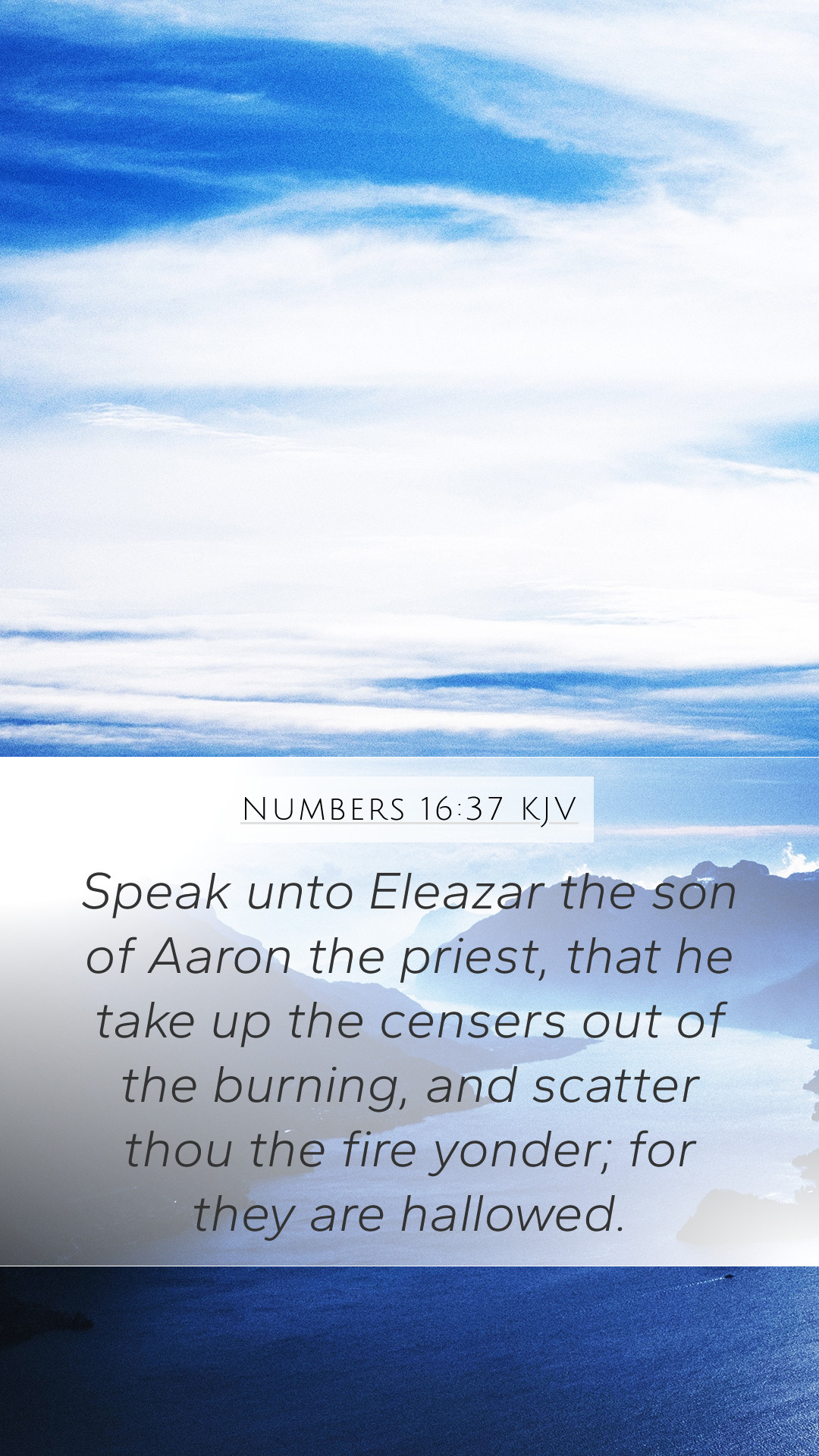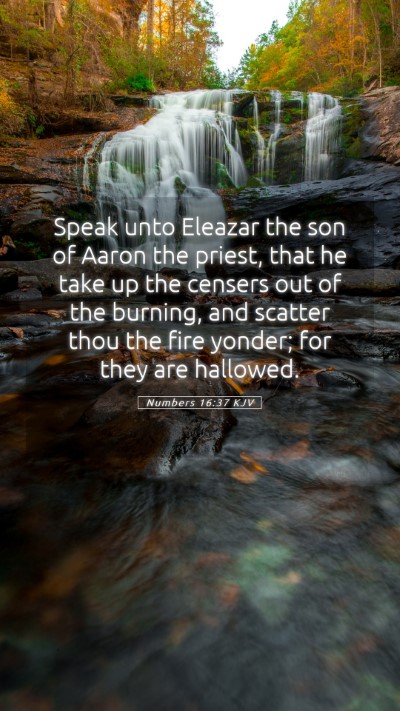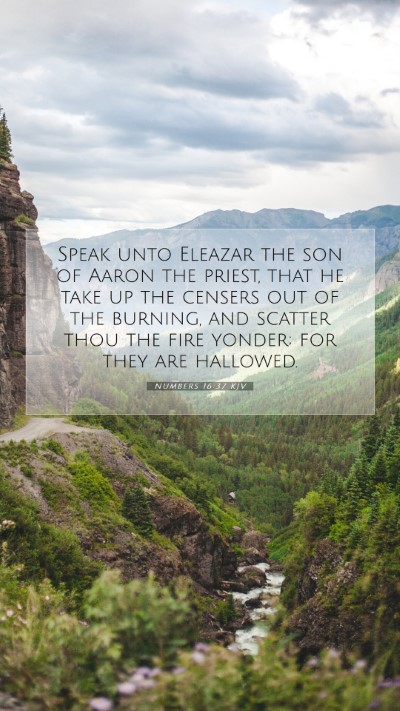Understanding Numbers 16:37 - Bible Verse Commentary
Verse: Numbers 16:37 (KJV)
"Speak unto Eleazar the son of Aaron the priest, that he take up the censers out of the burning, and scatter thou the fire yonder; for they are hallowed."
Introduction to the Verse
The passage in Numbers 16:37 conveys instructions given by God to the priest Eleazar regarding the censers used in a previous rebellion led by Korah. In the depths of its theological implications and the historical narrative, the verse prompts vital reflections on holiness, obedience, and the role of priesthood.
Contextual Background
To fully grasp the meaning of this verse, one must consider the broader context of Numbers Chapter 16, where a significant rebellion against Moses and Aaron occurred. This rebellion signifies a challenge to divinely appointed authority—a critical theme throughout Scripture.
Exegesis and Interpretation
- Divine Command: The order to Eleazar emphasizes God's sovereignty in directing sacred rituals, highlighting the importance of obedience within the priesthood.
- Significance of Censers: The censers, symbolic of prayer and worship, were now due to the transgression, to be treated with reverence and care, illustrating the seriousness of approaching God and handling what is sacred.
- Symbol of Hallowed Fire: The act of scattering the fire represents purification; it serves as a stark reminder that what has been corrupted must be dealt with rightly to maintain holiness within the camp of Israel.
- Incorporation of Holiness: The term "hallowed" places emphasis on the sanctity and the necessity of treating spiritual matters with the utmost respect. This highlights God’s essential call for holiness among His people.
Commentary Insights
Matthew Henry: Henry emphasizes that the censers used by the rebels were now to become vessels of holiness. Their transformation signifies the need for penitence and purification. He suggests that this act acts as a caution against pride and rebellion against divine order.
Albert Barnes: Barnes points out that the act illustrates the principles of divine justice; God does not merely punish, but He also teaches through the means He provides for sanctification and restitution. The censers here symbolize the atonement and the necessity of making peace with God after transgression.
Adam Clarke: Clarke highlights the critical theological significance of fire in scriptural contexts, often representing judgment and purification. He notes that while this fire was previously used in rebellion, it was now to undergo a sanctifying process in the hands of the faithful priest.
Application of the Verse
In contemporary reflection, Numbers 16:37 serves as a reminder of the importance of recognizing and respecting what is sacred. For Bible study groups and online Bible study resources, it poses essential considerations:
- Respect for Authority: This passage exemplifies the need to honor those placed in positions of spiritual leadership.
- Handling the Sacred: It prompts discussions about how modern believers can treat worship and prayer with the sanctity it deserves.
- Lessons in Obedience: How does this instruction to Eleazar resonate with our understanding of obedience to God’s commands today?
Cross References
- Leviticus 10:1-3 - The consequences of unauthorized worship and handling of sacred objects.
- Hebrews 12:28-29 - A reminder of reverence in worship, focusing on the consuming fire that God is.
- Exodus 30:9 - God's command not to offer unauthorized incense or incense with strange fire.
Conclusion
In summary, Numbers 16:37 is rich with theological depth and practical application for believers. By understanding the nature of divine authority, the sacredness of worship, and the necessity of obedience, we can draw invaluable lessons from this verse. As we engage in Bible study, it is crucial to explore such passages, utilizing various Bible study tools and resources to gain a comprehensive understanding of Scripture.


